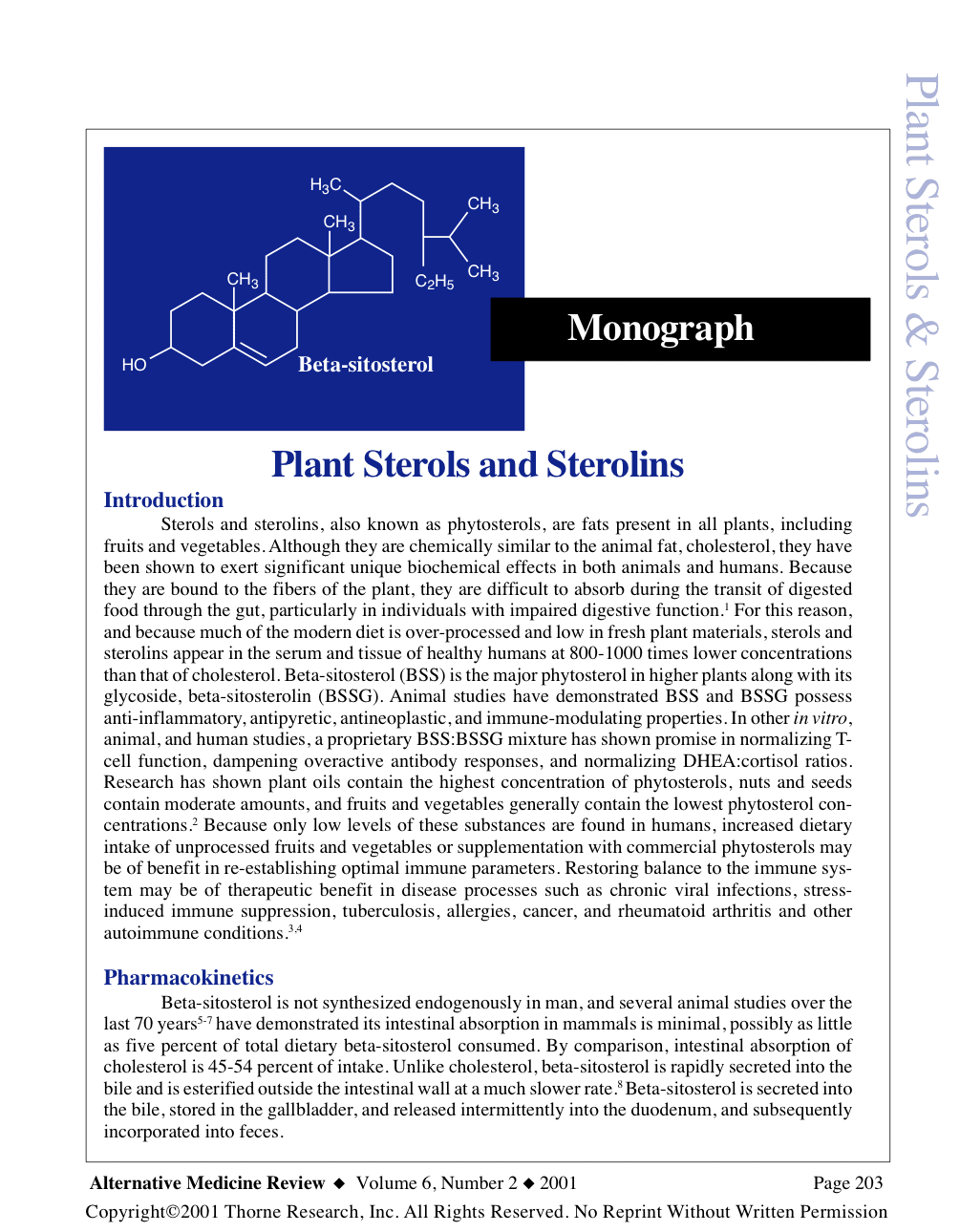Abstract
Sterols and sterolins, also known as phytosterols, are fats present in all plants, including fruits and vegetables. Although they are chemically similar to the animal fat, cholesterol, they have been shown to exert significant unique biochemical effects in both animals and humans. Because they are bound to the fibers of the plant, they are difficult to absorb during the transit of digested food through the gut, particularly in individuals with impaired digestive function.1 For this reason, and because much of the modern diet is over-processed and low in fresh plant materials, sterols and sterolins appear in the serum and tissue of healthy humans at 800-1000 times lower concentrations than that of cholesterol. Beta-sitosterol (BSS) is the major phytosterol in higher plants along with its glycoside, beta-sitosterolin (BSSG). Animal studies have demonstrated BSS and BSSG possess anti-inflammatory, antipyretic, antineoplastic, and immune-modulating properties. In other in vitro, animal, and human studies, a proprietary BSS:BSSG mixture has shown promise in normalizing T-cell function, dampening overactive antibody responses, and normalizing DHEA:cortisol ratios. Research has shown plant oils contain the highest concentration of phytosterols, nuts and seeds contain moderate amounts, and fruits and vegetables generally contain the lowest phytosterol concentrations.2 Because only low levels of these substances are found in humans, increased dietary intake of unprocessed fruits and vegetables or supplementation with commercial phytosterols may be of benefit in re-establishing optimal immune parameters. Restoring balance to the immune system may be of therapeutic benefit in disease processes such as chronic viral infections, stress-induced immune suppression, tuberculosis, allergies, cancer, and rheumatoid arthritis and other autoimmune conditions.

